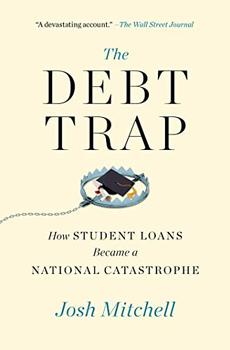Summary | Excerpt | Reviews | Beyond the book | Read-Alikes | Genres & Themes | Author Bio

What Low-Wage Work Did to Me and How It Drives America Insane
by Emily GuendelsbergerThe bitingly funny, eye-opening story of a college-educated young professional who finds work in the automated and time-starved world of hourly labor.
After the local newspaper where she worked as a reporter closed, Emily Guendelsberger took a pre-Christmas job at an Amazon fulfillment center outside Louisville, Kentucky. There, the vending machines were stocked with painkillers, and the staff turnover was dizzying. In the new year, she travelled to North Carolina to work at a call center, a place where even bathroom breaks were timed to the second. And finally, Guendelsberger was hired at a San Francisco McDonald's, narrowly escaping revenge-seeking customers who pelted her with condiments.
Across three jobs, and in three different parts of the country, Guendelsberger directly took part in the revolution changing the U.S. workplace. On The Clock takes us behind the scenes of the fastest-growing segment of the American workforce to understand the future of work in America - and its present. Until robots pack boxes, resolve billing issues, and make fast food, human beings supervised by AI will continue to get the job done. Guendelsberger shows us how workers went from being the most expensive element of production to the cheapest - and how low wage jobs have been remade to serve the ideals of efficiency, at the cost of humanity.
On The Clock explores the lengths that half of Americans will go to in order to make a living, offering not only a better understanding of the modern workplace, but also surprising solutions to make work more humane for millions of Americans.
The author’s writing style fluctuates between hilariously candid and heartbreaking as we follow the emotional ups and downs of low-wage life...The references to science, anthropology, and psychology are fascinating, and result in a comprehensive treatise that thoughtfully examines the consequences of chronic stress and overwork...continued
Full Review
(671 words)
This review is available to non-members for a limited time. For full access,
become a member today.
(Reviewed by Tara Mcnabb).
 It's no secret that rapid innovations in technology have drastically changed the way we work. But are these changes always for the better? Here are 10 shocking facts about the rise of automation in the workplace, taken directly from the pages of Emily Guendelsberger's On The Clock.
It's no secret that rapid innovations in technology have drastically changed the way we work. But are these changes always for the better? Here are 10 shocking facts about the rise of automation in the workplace, taken directly from the pages of Emily Guendelsberger's On The Clock.
This "beyond the book" feature is available to non-members for a limited time. Join today for full access.

If you liked On the Clock, try these:

by Josh Mitchell
Published 2022
From acclaimed Wall Street Journal reporter Josh Mitchell, the dramatic, untold story of student debt in America.

by Alissa Quart
Published 2019
Families today are squeezed on every side - from high childcare costs and harsh employment policies to workplaces without paid family leave or even dependable and regular working hours. Many realize that attaining the standard of living their parents managed has become impossible.
When a true genius appears in the world, you may know him by this sign...
Click Here to find out who said this, as well as discovering other famous literary quotes!